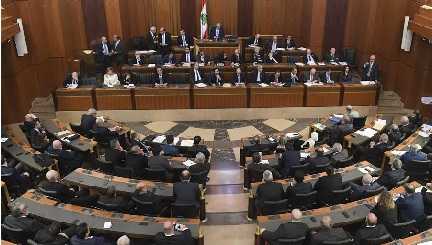
17 July 2023; MEMO: The five-nation group on Lebanon, which comprises the US, France, Saudi Arabia, Qatar and Egypt, said on Monday they had discussed several measures against politicians and groups who were obstructing the election of a new president, Reuters reports.
Last month, Parliament failed – for the 12th time – to fill the post, reserved for a Maronite Christian in Lebanon's sectarian system, and vacant since the term of the Hezbollah-allied Michel Aoun ended in October.
The meeting in Doha, attended by Lebanon's key Western and Arab donors and allies said it was imperative a president was elected and urged Lebanon's leaders to overcome a deepening institutional paralysis in a country where one of the world's worst economic crises has been festering for years.
"We discussed several options, including taking measures against those who obstruct progress in this area," said the communiqué, without elaborating on the steps.
The stand-off has played out along sectarian lines, with Christian parties supporting Jihad Azour, the IMF's Middle East Director and an ex-finance minister, and Shia factions, Hezbollah and Amal, against him.
READ: Lebanon awaits foreign push out of political impasse
The stand-off has laid bare Lebanon's deep splits, with the heavily armed Iran-backed Hezbollah deploying its political might against Azour's bid to fill the vacant presidency, while continuing to campaign for its ally – Suleiman Frangieh.
Last week, the European Parliament also blamed Hezbollah and Amal and their allies for resorting to what it said were unconstitutional tactics to prevent the conclusion of the vote and deepening the political deadlock.
Lawmakers from Hezbollah and allies withdrew from the last session to obstruct a bid by the main Christian parties to elect Azour.
Hezbollah and its allies have close ties to Syria and Iran, while their opponents in the Christian and Sunni Muslim communities traditionally look to the West and Sunni-led Gulf Arab states.
Washington has also warned its administration was considering sanctions on Lebanese officials for their continued obstruction of the election of a new president and warned the paralysis could only worsen the country's political crisis.




